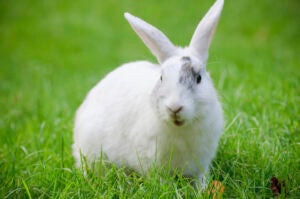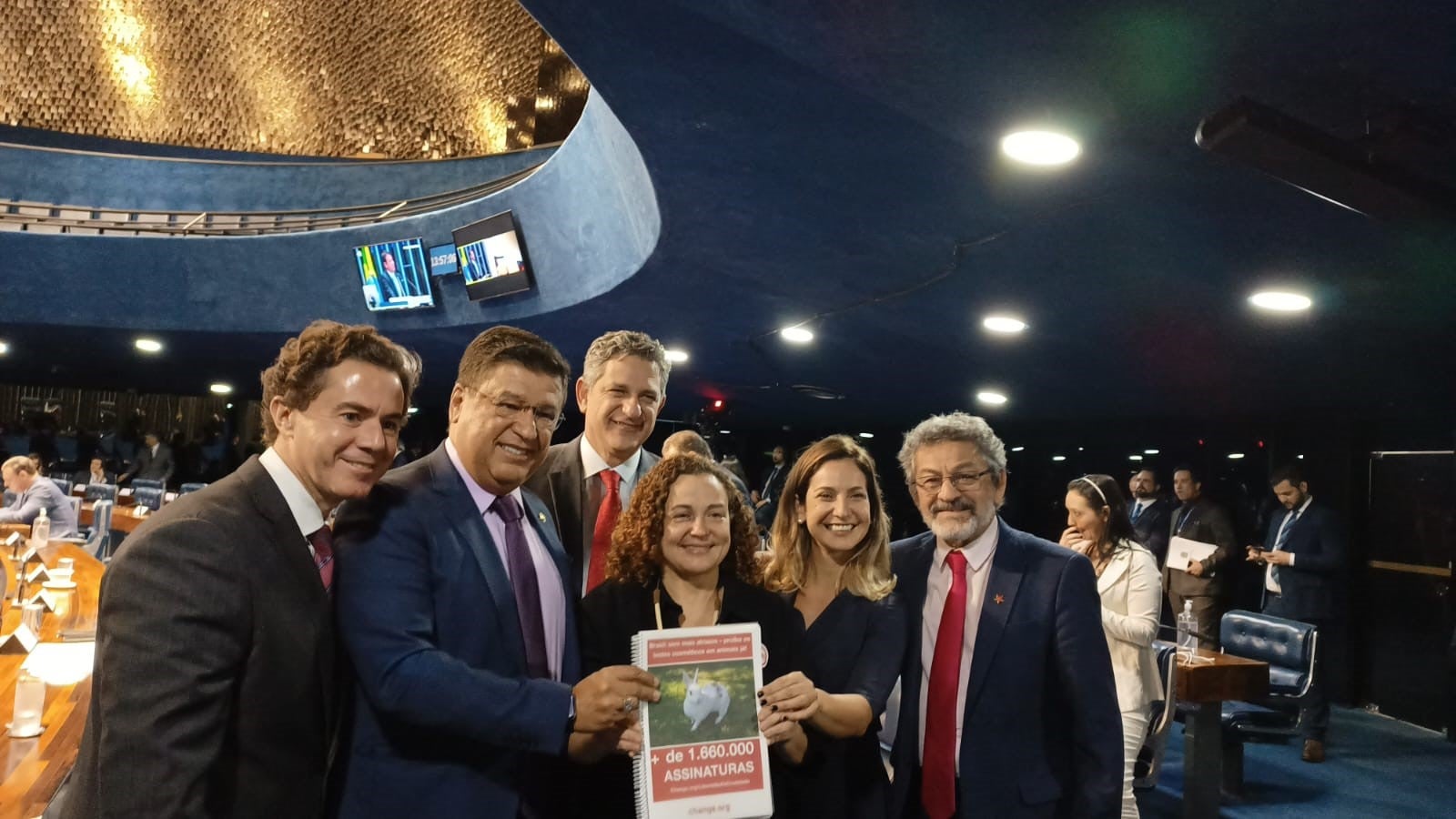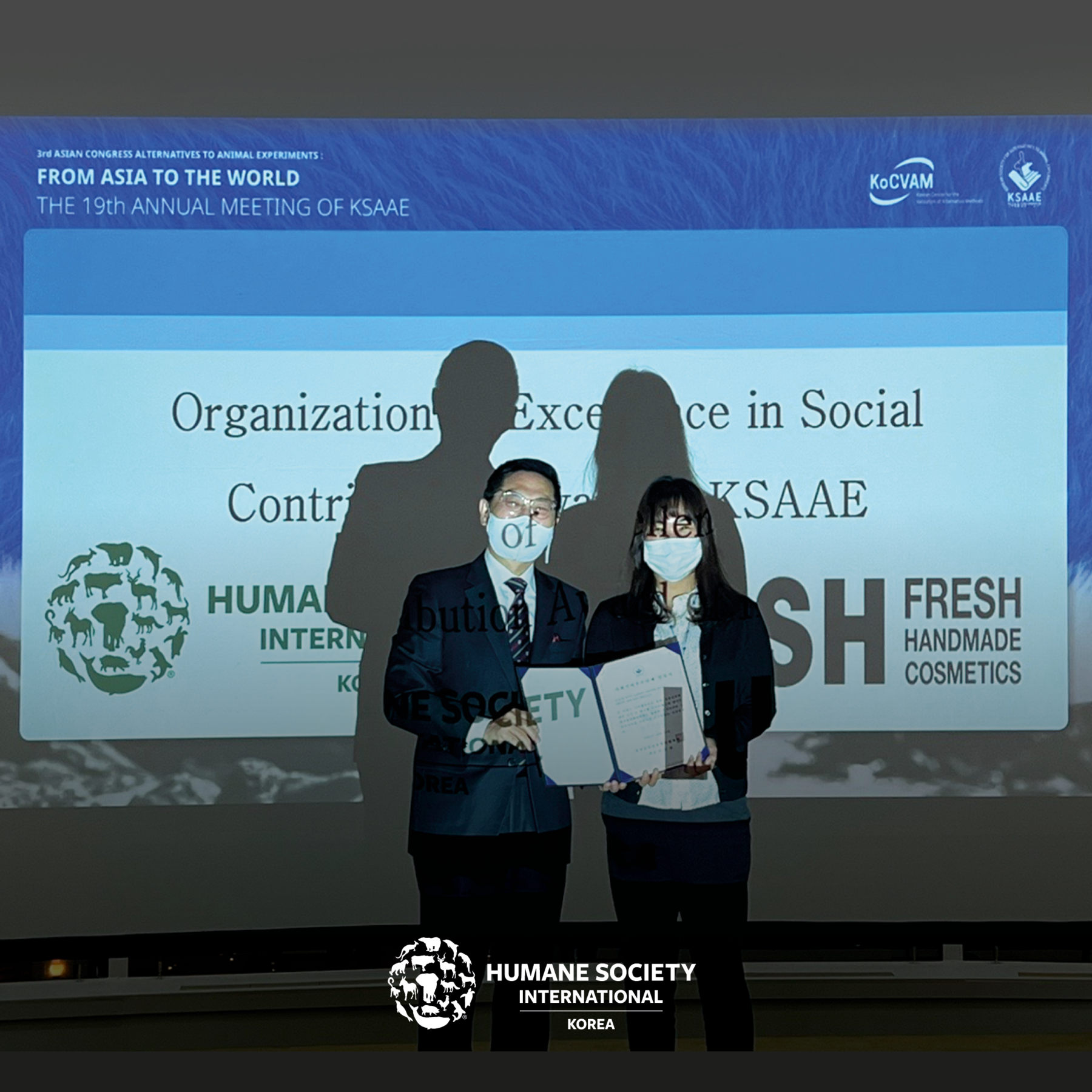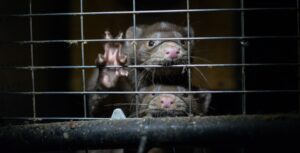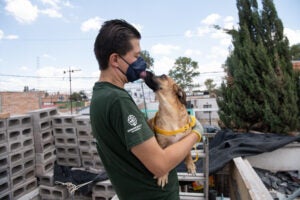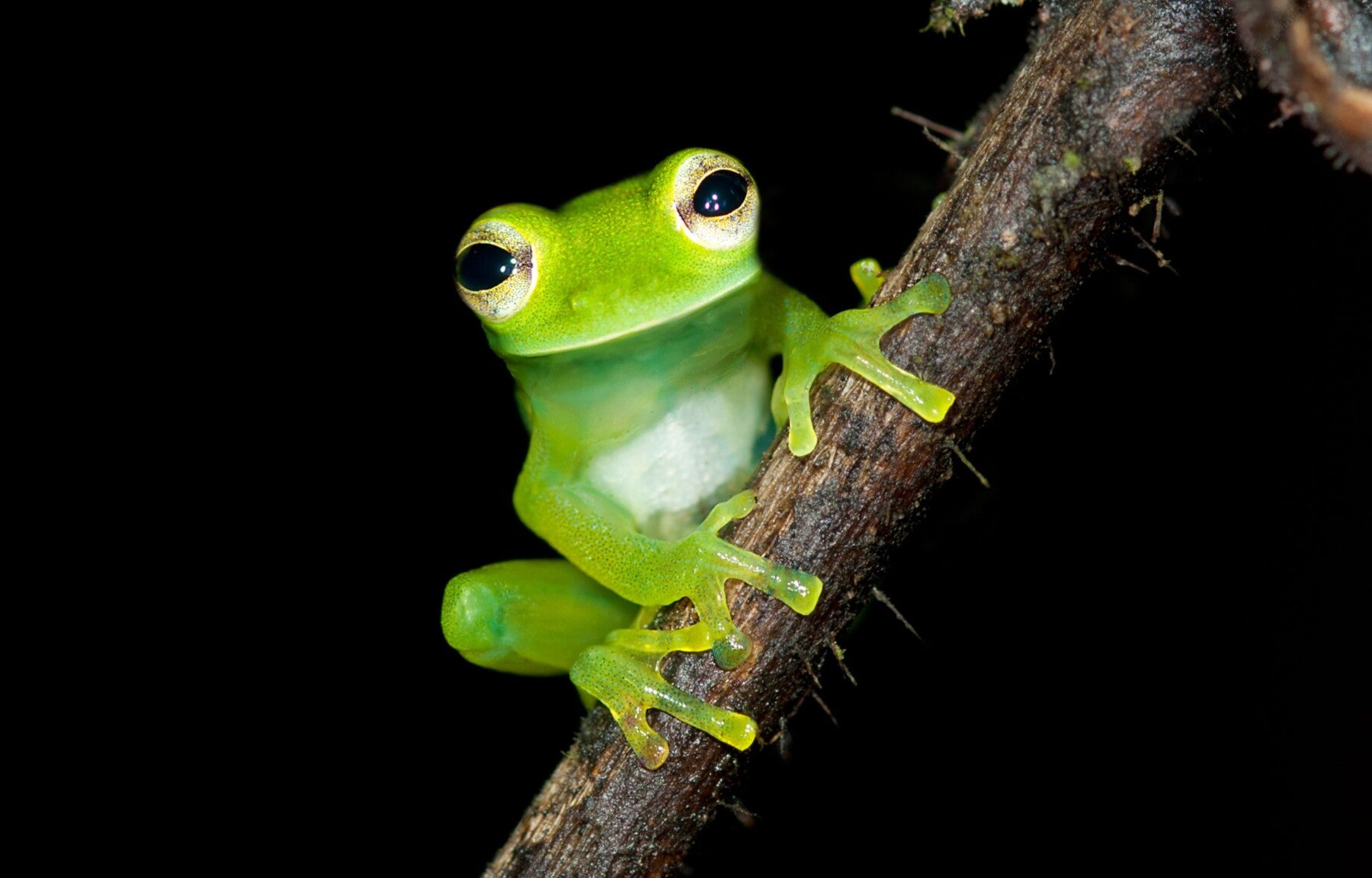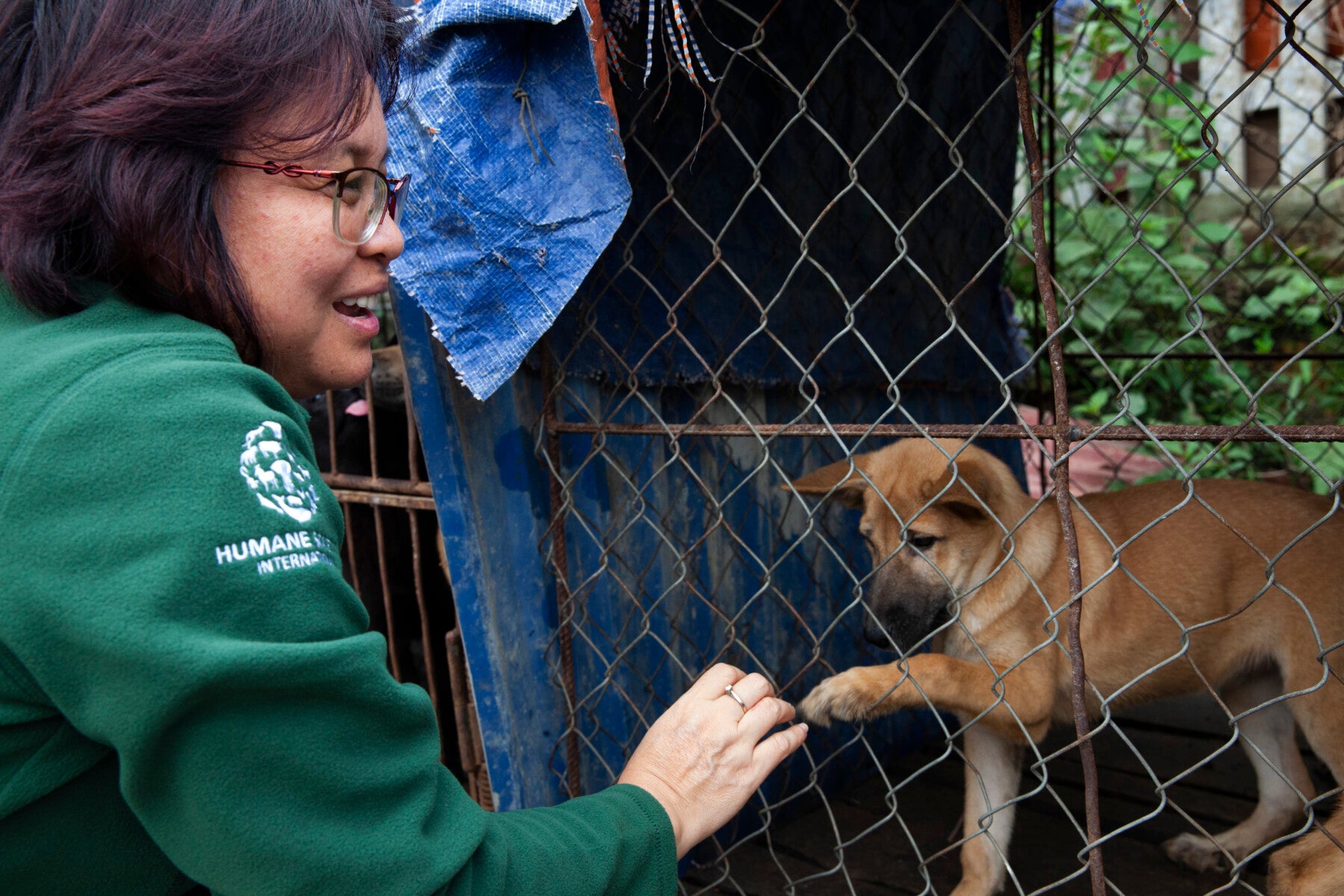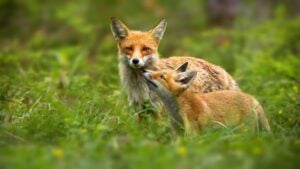
LONDON—The UK risks falling behind on animal welfare as California’s ban on fur sales has now officially taken effect, warns animal charity Humane Society International/UK. While fur farming has been banned on ethical grounds across the UK since the Fur Farming (Prohibition) Acts came into force in January 2003, two decades on it is still legal for fur from countries such as Finland and China to be imported and sold here. Using His Majesties’ Revenue and Customs figures and fur auction price data, HSI/UK estimates that the equivalent of around 1.5-2 million animals’ furs are imported annually.
California is the largest sub-national economy in the world and is predicted to soon become the fourth largest global economy. The state’s Gov. Gavin Newsom recently credited its growth on “California’s values and entrepreneurial spirit.” Momentum is also building in Europe as an official European Citizens’ Initiative petition calling for an EU-wide ban on fur farming and the import of fur products has gathered over 1.2 million signatures since it launched in May 2022. By contrast, the UK government has dragged its feet for years on banning fur imports, despite polling showing the overwhelming majority (77%) of the British public think the government should ban the import of products, such as fur, where production methods are already banned in the UK. The campaign for a #FurFreeBritain, led by Humane Society International/UK, has so far amassed more than 1 million petition signatures calling for a UK ban on fur imports and sales, as well as support from more than 80 celebrities.
Claire Bass, senior director of campaigns and public affairs at Humane Society International/UK, said: “When the UK became the first country in the world to ban fur farming, it marked us as a leader in animal protection and paved the way for many countries to follow. But 20 years on, we’re exercising a double standard. While illegal in our own backyard, millions of animals are still suffering in cramped cages overseas for frivolous fur fashion that’s shockingly permitted to be imported and sold in the UK.”
She added: “The Government’s soundbites about being a ‘world leader in animal welfare’ must be called into question when the state of California and 12 cities and towns across America have already banned fur sales, while our Ministers have been sitting on the results of a formal consultation on the UK fur trade for 18 months. Enhanced animal welfare was touted as a ‘Brexit benefit’ by the Government but so far that’s been a hollow promise; at this rate the EU will wash its hands of the disgusting fur trade before the UK does. We urge the Government to turn words into actions and adopt this extremely popular policy to deliver a #FurFreeBritain.”
In May 2021 the UK government launched a Call for Evidence on the UK fur trade, with the stated intention of using the findings to inform possible future action. The consultation closed in June 2021, but the public is still waiting for the Department of Environment, Food and Rural Affairs to release these findings, despite Ministers confirming they would do so.
California’s new law makes it the first state in the U.S. to take this monumental step to end the fur trade within its borders by banning the sale and manufacturing of new animal fur products. A further 12 US cities and towns have similarly banned fur sales. California’s Assembly Bill 44, which passed in 2019, was championed by Assemblymember Laura Friedman and sponsored by the Humane Society of the United States and Animal Hope in Legislation.
Jenny Berg, California state director for the Humane Society of the United States, said: “We are grateful to California for taking a stand against the cruel fur industry by implementing this statewide ban on the production and sale of new fur products. , especially when humane, environmentally sustainable alternatives exist. We applaud California for leading the fight against fur and sending a powerful message that animals should no longer suffer and die for fashion.”
Assemblymember Laura Friedman commented: “Today marks a historic step forward for California with the implementation of a law that truly represents the values of our constituents. Californians do not want to see animals live and die in cruel ways for nothing more than fashion, and I’m so pleased that this law will help uphold our state’s animal welfare standards as well as potentially help drive innovation for more sustainable fashion alternatives.”
Before the bill’s passage, four municipalities in California – Los Angeles (2018), San Francisco (2018), Berkeley (2017) and West Hollywood (2013) – passed similar legislation, paving the way for a state-wide ban. In 2021, Israel became the first country to ban fur sales.
Facts:
- More than 100 million animals are killed for their fur every year worldwide. The vast majority (around 95%) of these spend their entire lives confined in small, barren cages unable to act out their most basic behaviours such as running, digging and, in the case of mink, swimming.
- The UK was the first country in the world to ban fur farming and 18 other European countries have now followed suit, including Ireland, France, Italy and most recently in September 2022, Latvia.
- California’s ban applies to brick-and-mortar stores selling new fur products as well as online sales of fur products into the state.
- In addition to California, similar bans have also passed in the cities of Los Angeles, San Francisco, Berkeley and West Hollywood, and the towns of Brookline, Weston, Wellesley, Cambridge and Plymouth in Massachusetts, Ann Arbor in Michigan, Boulder in Colorado and Hallandale Beach in Florida.
ENDS
Media contact: Sally Ivens: 07590 559299; sivens@hsi.org

